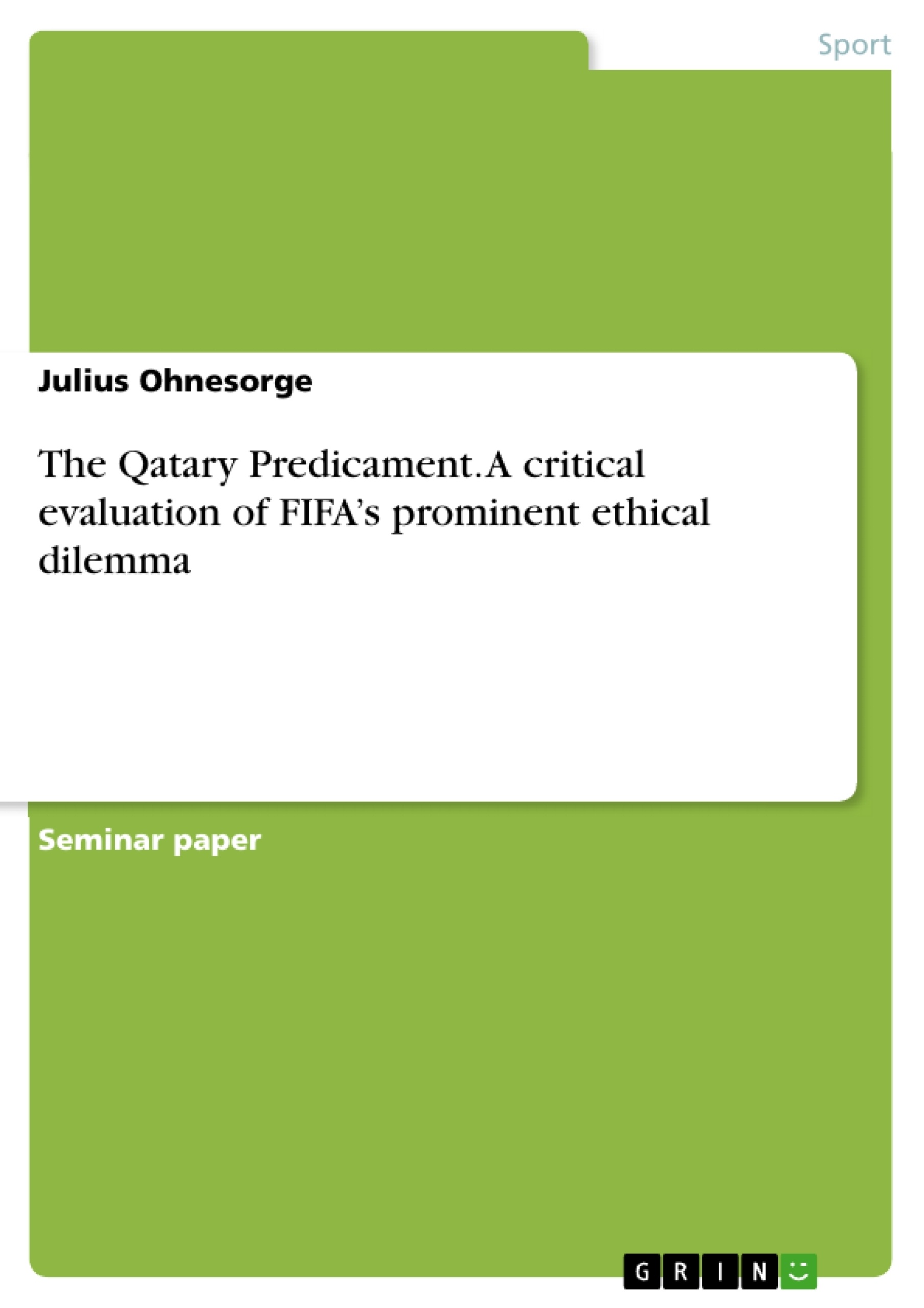The exposure of human rights violations in Qatar’s construction business in relation to the FIFA World Cup 2022 has put the FIFA, an organisation with a profound commitment to CSR, under immense international public pressure. As the FIFA is struggling to be proactive and meet the expectations of society, this research paper aims to serve as a guideline for the FIFA how to evaluate this situation and to demonstrate the necessity of implementing measures.
The reports of renowned, international, non-governmental organisations deliver proof of severe human rights violations and inadequate protection of workers. The analysis from an ethical standpoint comes to the conclusion that the inevitability to act in this situation is justified. Therefore, the implementation of a four-step approach is suggested, which pursues the improvement of working conditions and the reestablishment of FIFA’s reputation and credibility. Further research could focus upon the analysis of approaches to HRM practices in Qatar by other internationally, operating companies.
Table of Contents
- Introduction
- Background
- Purpose
- Structure
- Theoretical Background
- Business Ethics
- Corporate Social Responsibility
- The Qatari perspective
- Methodology
- Types of research
- Materials
- Results
- Discussion
- Recommendations
- Conclusion
Objectives and Key Themes
This research critically evaluates FIFA's ethical dilemma regarding the 2022 World Cup in Qatar. The study aims to explore the ethical implications of FIFA's decision to award the tournament to Qatar, considering the country's human rights record and social and political context.
- Business Ethics in International Sports
- Corporate Social Responsibility in Global Events
- Human Rights and Labor Practices in Qatar
- The Role of FIFA in Addressing Ethical Concerns
- The Impact of the 2022 World Cup on Qatar
Chapter Summaries
The introduction lays out the background of the study, outlining FIFA's decision to host the 2022 World Cup in Qatar and the subsequent controversy. It also states the study's purpose and structure. Chapter 2 delves into the theoretical framework, examining concepts of business ethics, corporate social responsibility, and the Qatari perspective on these issues. Chapter 3 outlines the methodology employed, discussing the types of research and materials used for this study. The subsequent chapters, focusing on results, discussion, recommendations, and conclusion, are excluded to avoid spoilers.
Keywords
The primary focus of this research centers on FIFA, ethics, corporate social responsibility, human rights, labor practices, and the Qatari context. The study explores the ethical implications of FIFA's decision to award the 2022 World Cup to Qatar, considering the country's social and political landscape. This research highlights key themes such as business ethics in international sports, corporate social responsibility in global events, and the role of FIFA in addressing ethical concerns.
Frequently Asked Questions
What was FIFA's ethical dilemma regarding the 2022 World Cup?
The dilemma involved awarding the tournament to Qatar despite severe reports of human rights violations and inadequate labor protection in the construction sector.
What is Corporate Social Responsibility (CSR) in the context of FIFA?
CSR refers to FIFA's commitment to operate in an economically, socially, and environmentally sustainable manner, which was heavily questioned during the Qatar preparations.
What human rights issues were reported in Qatar?
International NGOs documented severe violations concerning migrant workers' safety, living conditions, and the controversial kafala system.
How can FIFA reestablish its credibility?
The research suggests a four-step approach focused on improving working conditions and implementing stricter ethical guidelines for future host selections.
Why is the "Qatari perspective" important in this debate?
Understanding Qatar's social and political landscape is crucial to evaluating how international labor standards can be effectively integrated into local practices.
- Citation du texte
- Julius Ohnesorge (Auteur), 2014, The Qatary Predicament. A critical evaluation of FIFA’s prominent ethical dilemma, Munich, GRIN Verlag, https://www.grin.com/document/352821



